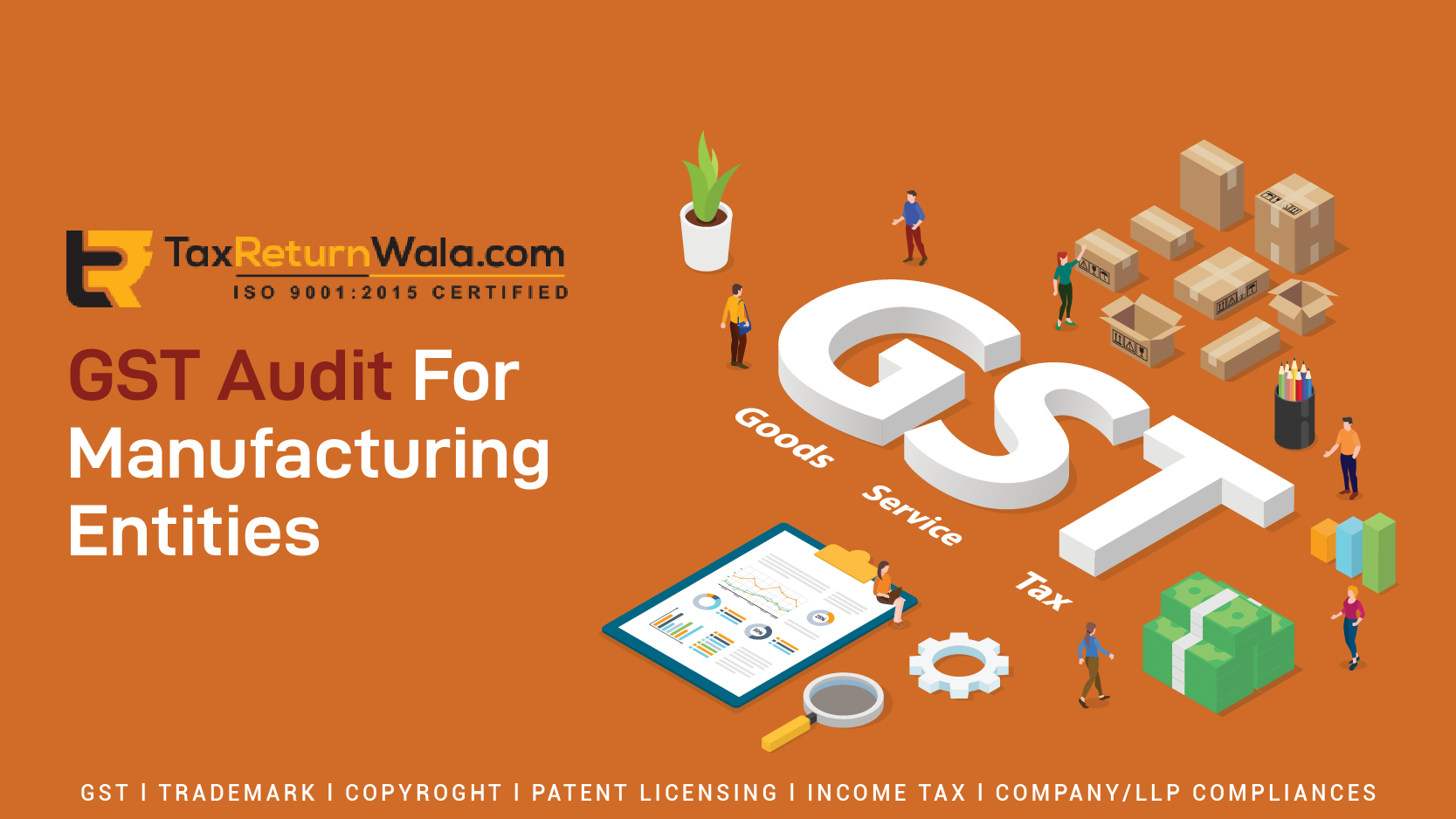GST Audit for Manufacturing Entities
The government of India has a considerable view over forming favorable policies for the manufacturing sector. Usually, these entities are benefitted through government schemes and policies parked for them through the MSME recognition route. The manufacturing sector in India, like others, was also bought under the simplified system of GST, where entities were relieved from long-handled tax refunds and multiple reporting obligations as faced by them under the previous sales tax regime.
GST for manufacturing entities is mandatory to obtain if they are producing GST enlisted goods or if their business turnover threshold matches the one required to obtain a GST license. Manufacturing entities especially those who want to scale their business with investment and those grossing over a stated turnover limit are also required to file their audited statements to the GST Authorities.
Below is a guide on How Provisions of GST Audit applies to the Manufacturing Sector? and What compliance related to such provisions are to be fulfilled?
What is GST Audit?
Backed by the audit concept of the earlier sales tax regime, audit provisions under GST were also placed for manufacturing entities.
As per the GST legislation, every registered entity under GST has to undergo an audit of his books of accounts, returns, and related documents if their turnover of business exceeds Rs 2 crore (Subject to change on time to time basis).
GST Audit requires proper examination of books, returns, and all related documents by an appointed Chartered Accountant or Cost Accountant. Certification of all GST particulars is necessary for entities to make sure – accurate information is being served to the GST Authorities and authorities too are not left in a doubt on the affairs of the entity.
For ensuring the applicability of provisions of GST Audit, the following values have to be included in the estimation of business turnover:
- Value of all intra-state and inter-state taxable supplies ;
- Value of all exempted supplies ;
- Value of total exports, zero-rated supplies, and all related taxable supplies.
The above total shall not be inclusive of supplies with reverse charge, GST charged or ITC amount, sales returns or purchase return values.
Essentials for GST Audit of Manufacturing Entities
GST Audit requires delivery of an approved statement of all audited records from an audit professional confirming assurance of his check over obligatory work of entities. A GST professional appointed is required to analyze GST returns pending/filed or not, the accuracy of figures of input credit filed or claimed, invoices issued, taxes paid, etc and to check the following of all regulations and related compliances.
Section 35 of the CGST Act prescribes the manner of – record preparation, storage of books/statements, and confirmation of their accessibility to the audit authorities. As per the section, the following need to be assessed during the audit of manufacturing concern:
- Authenticity and placement of Certificate of Registration at premises.
- Accuracy of Books or accounts maintained in relation to goods manufactured especially records related to inward/outward supplies, tax credit, and other related particulars as may be necessary or prescribed.
With all particulars assessed and confirmed from the auditor professional, a statement through the prescribed form with all briefings and conclusions from the audit has to be filed on the GST common portal. GST Audit forms have to be filled with a due assessment of audit professional confirming the values assessed, if there is a difference or some additional taxes are to be paid, the same can be filed with help of the same auditor professional or any other tax service provider.
Who can do a GST Audit of a Manufacturing Entity?
GST powers the only the following persons to undertake Audit of a manufacturing entity:
- For Auditor entities with turnover Rs 2 crore – a Chartered accountant or a Cost Accountant, in practice and authorized to undertake audit compliances.
- For Special Audit orders issued by Commissioner or any other officer under GST towards a manufacturing entity – Any audit profession appointed or designated by the Commissioner.
Compliances Filing for GST Audit by Manufacturing Entities:
Audit under GST does not require the appointment of multiple professionals or approvals from different authorities. GST has simplified doing compliance of GST Audit through self-assessment and filling of a few e-forms available on the GST common portal.
The following e-forms have to be submitted with due attestation and signed declaration of the audit professional by the manufacturing entity for completion of GST Audit:
- Form GSTR 9 –For regular taxpayers filing GSTR 1 and GSTR 3B.
- Form GSTR 9A – For taxpayers under Composition Scheme.
- Form GSTR 9B – For taxpayers under the e-commerce category.
- Form GSTR 9C (Reconciliation Statement) – For taxpayers whose turnover lies above Rs 2 crore, to be filed along with the appropriate audit form applicable above.
- Form DRC – 03 – For taxpayers holding due taxes, wrong claims in input or have additional GST liability to pay, found during the conduct of the audit.
Penalty for Non – Compliance of GST Audit Provisions by Manufacturing Entities
For non –filing of GST Audit return, the GST authorities propose a fine of Rs 200 on a per-day basis (Rs 100 for CSGT and Rs 100 for SGST ) till the default continues. This amount shall continue to be charged with a max limit of the amount calculated at a quarter percent of the turnover prescribed by the authorities for such a period.
In case of noncompliance or disregard for any audit provision under GST, a fine of Rs 25,000 can be imposed. The penalty amount can differ referring to the amount involved in default.
GST miscalculations can result in big penal consequences.
If you need assistance, you can consult our GST experts there at info@taxreturnwala.com


